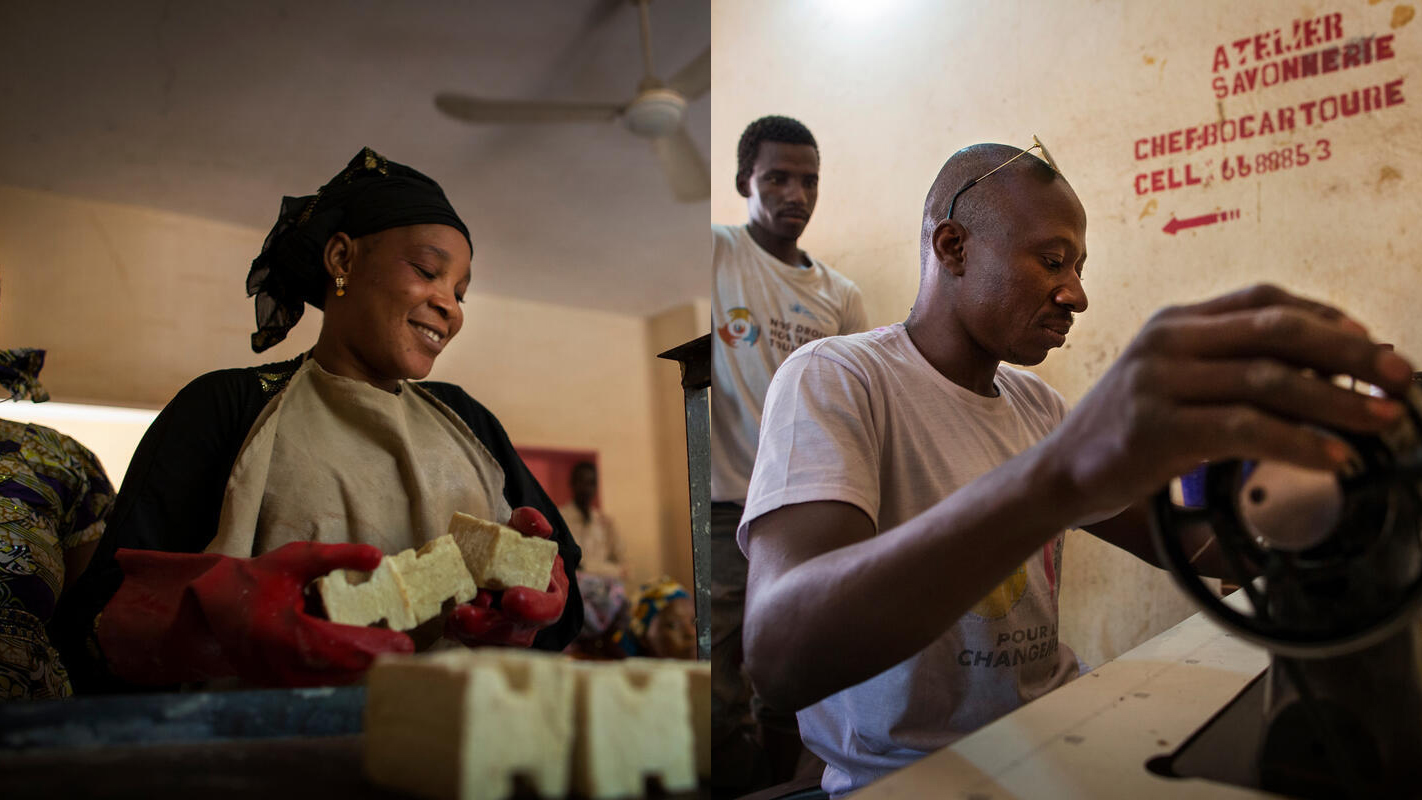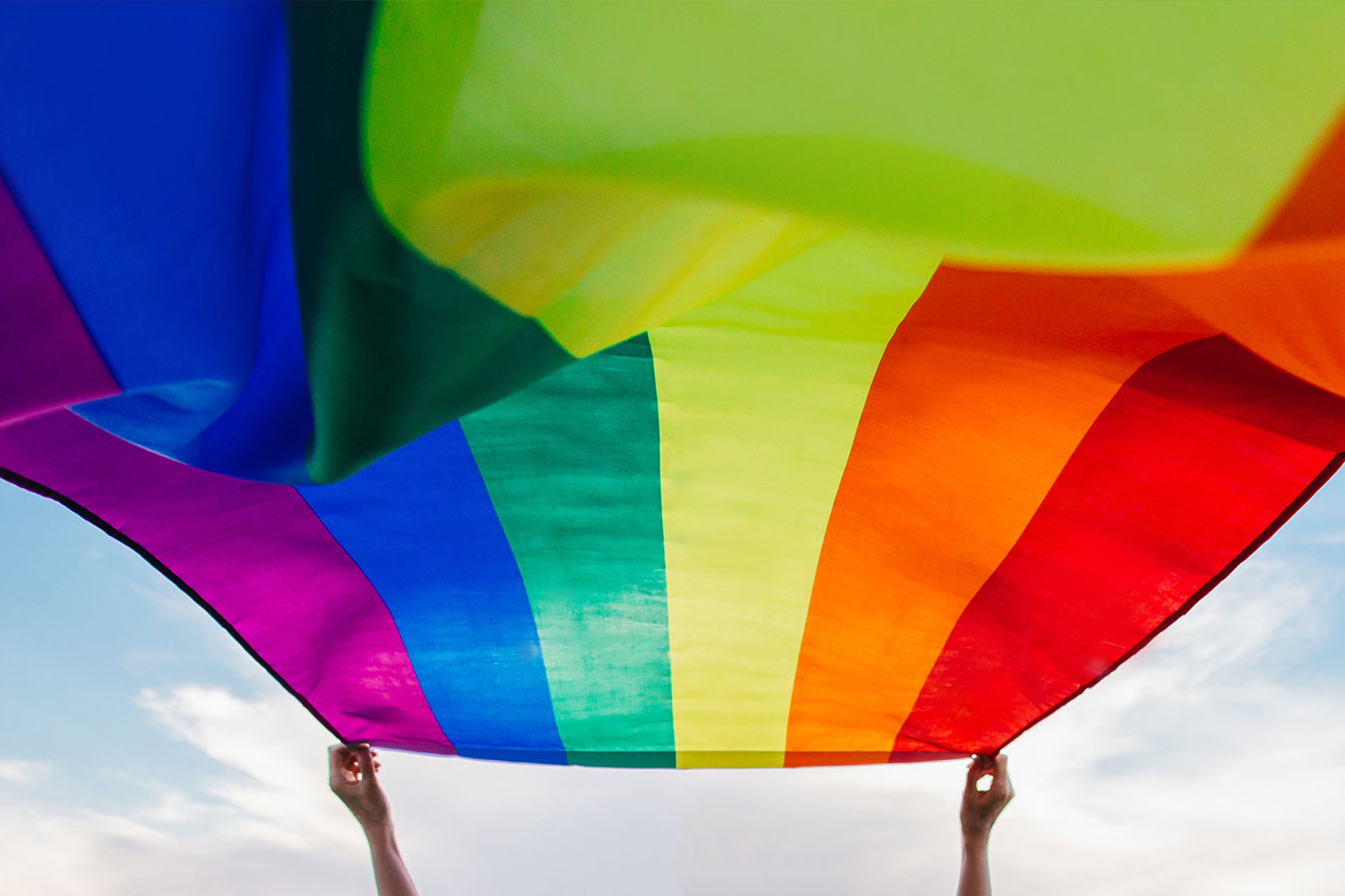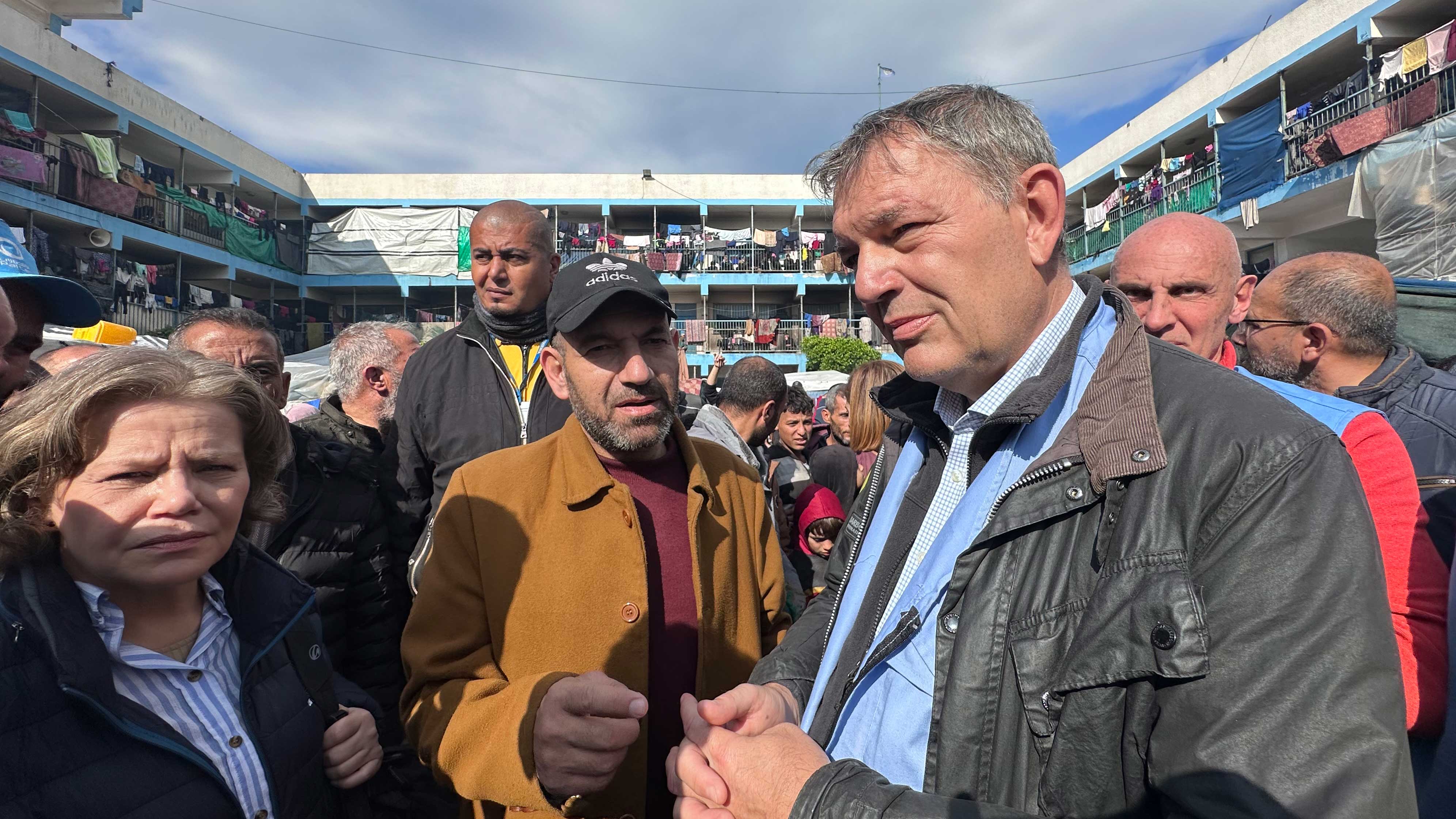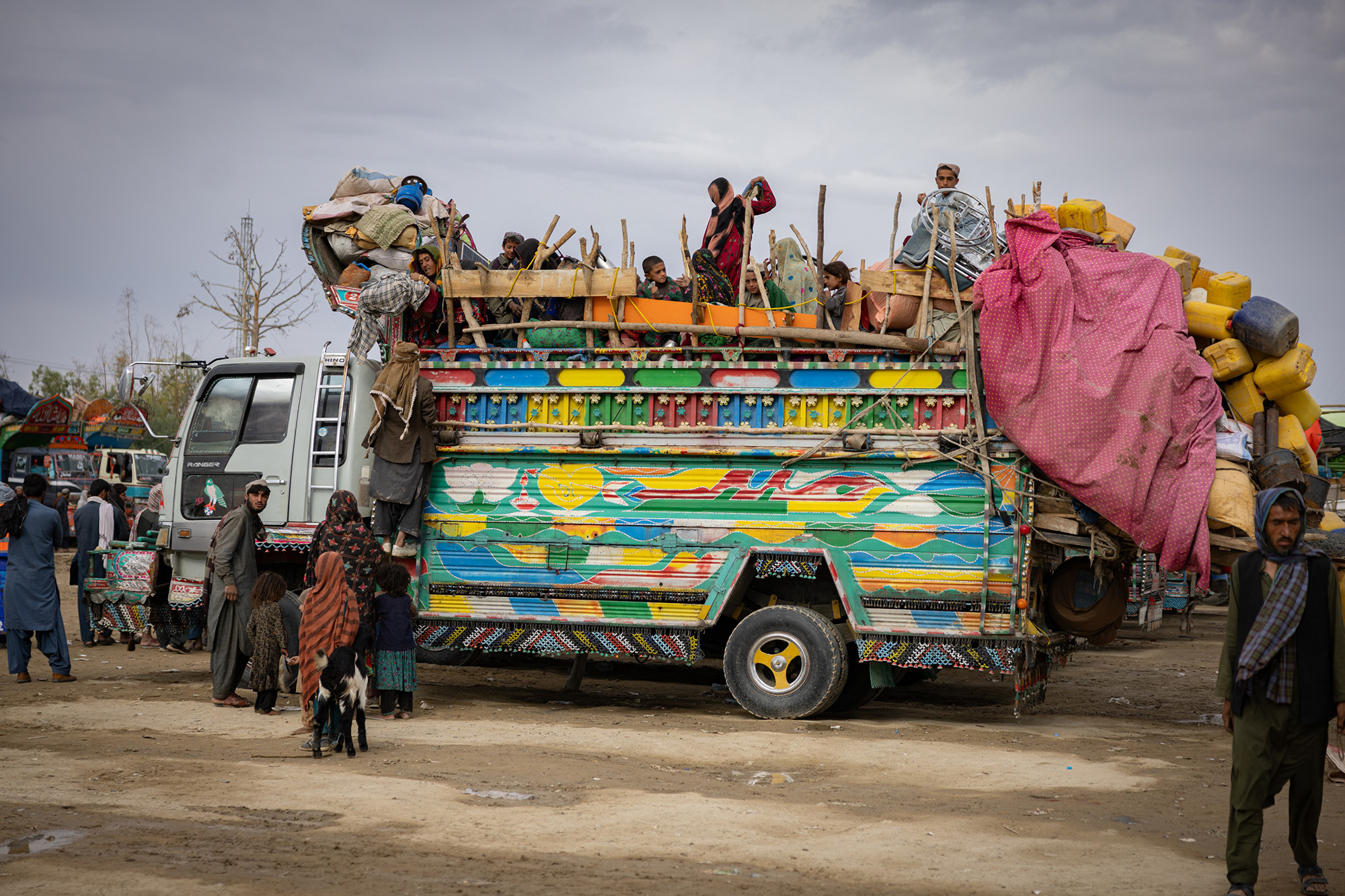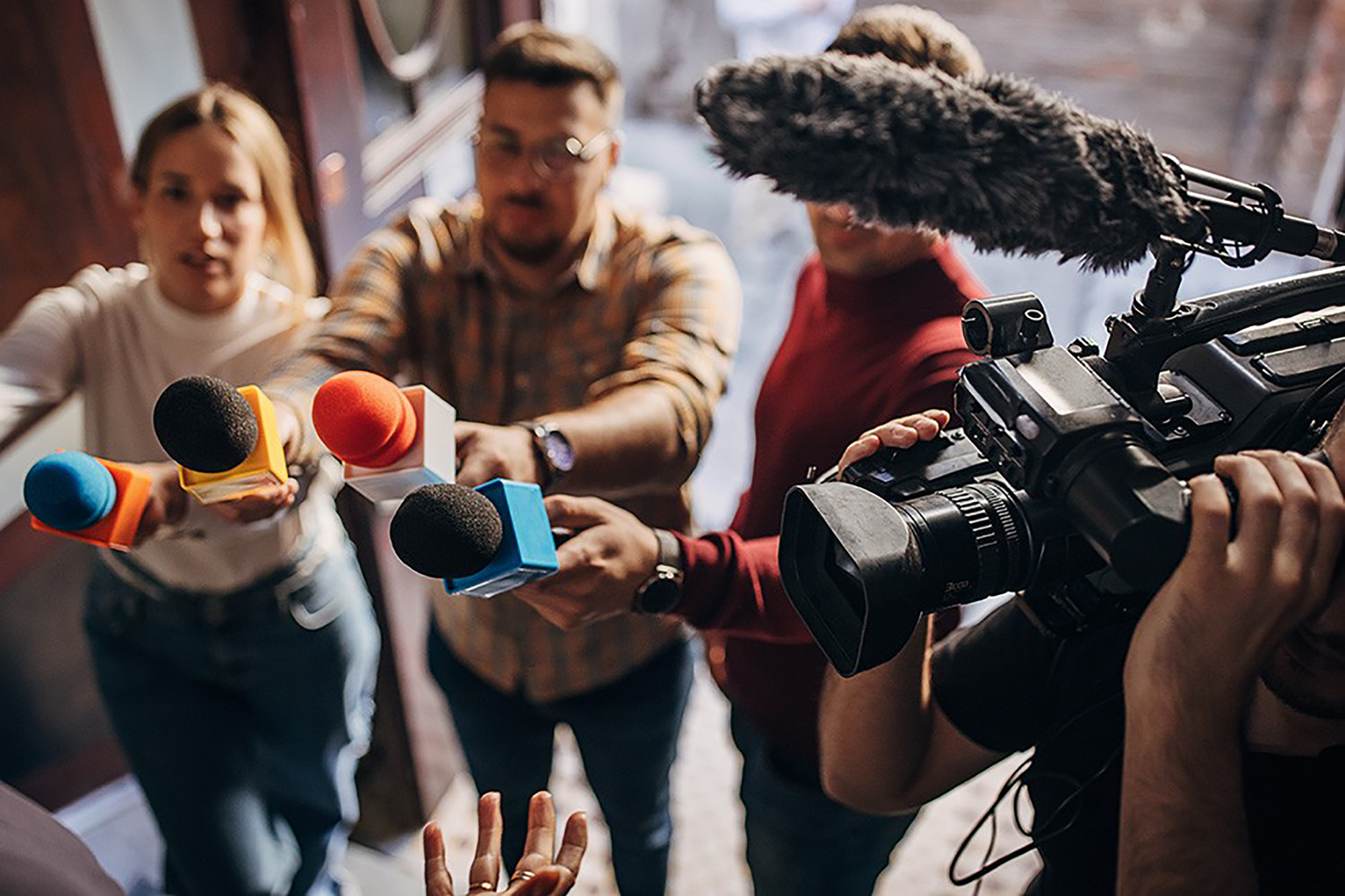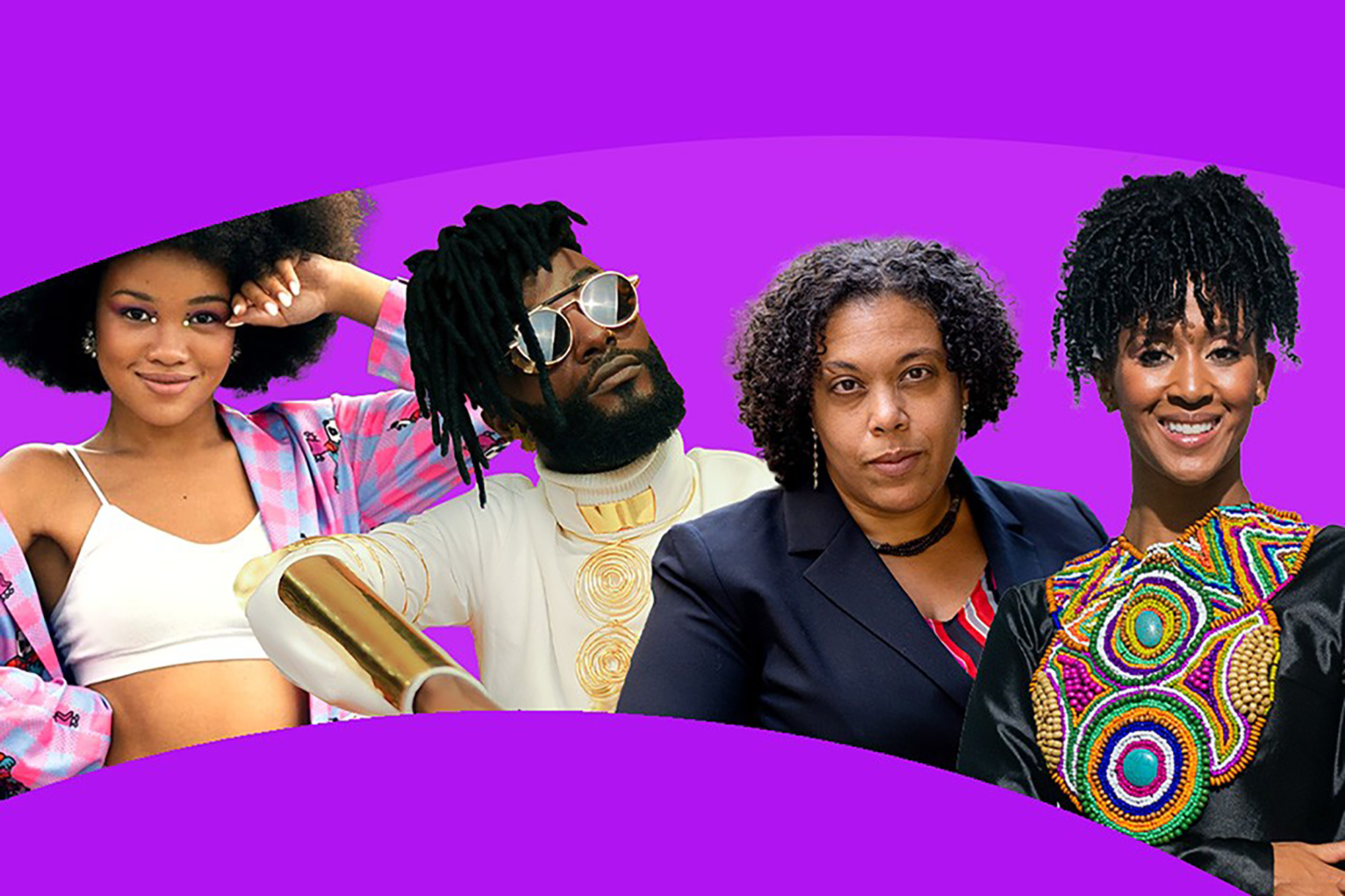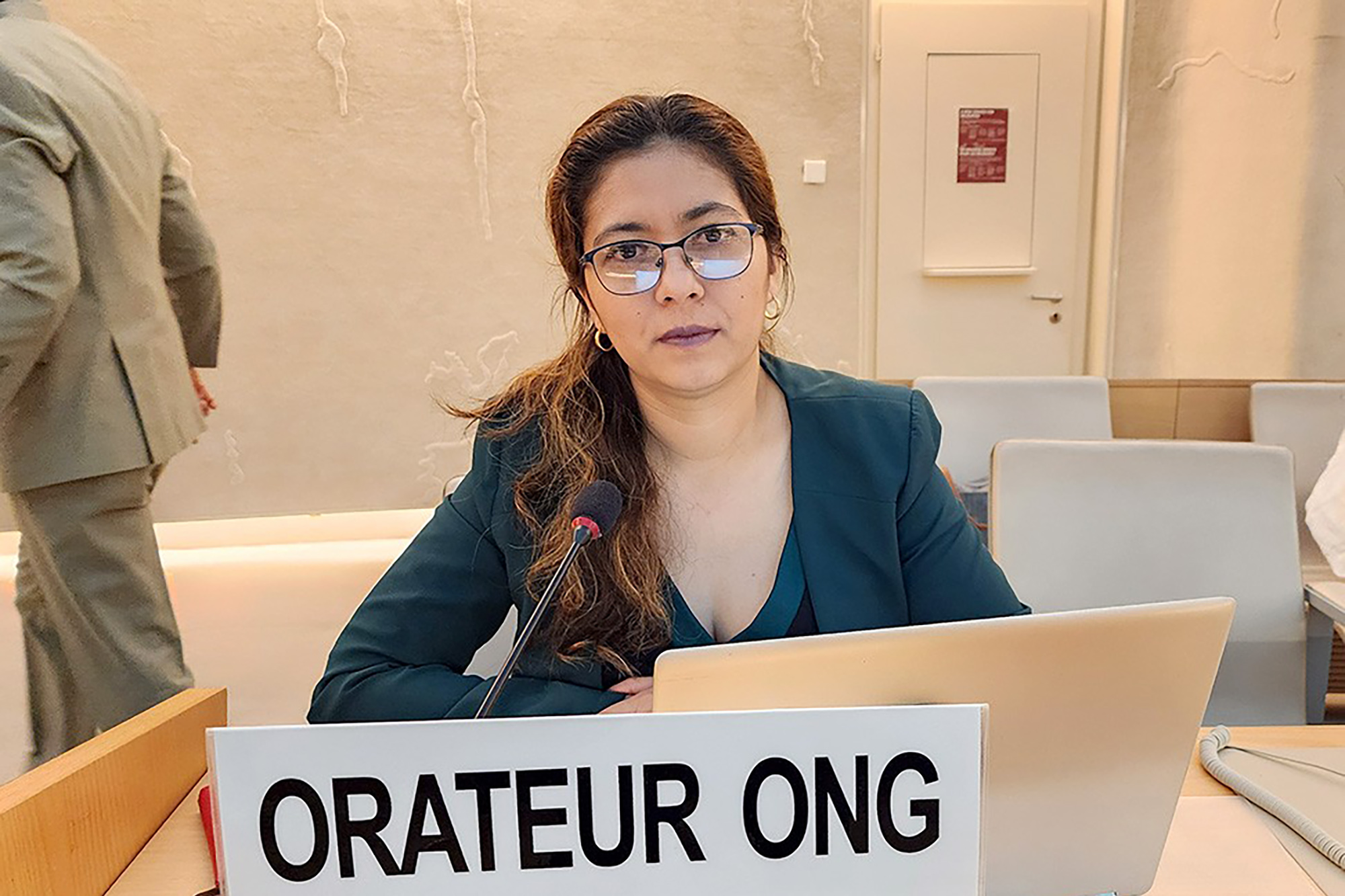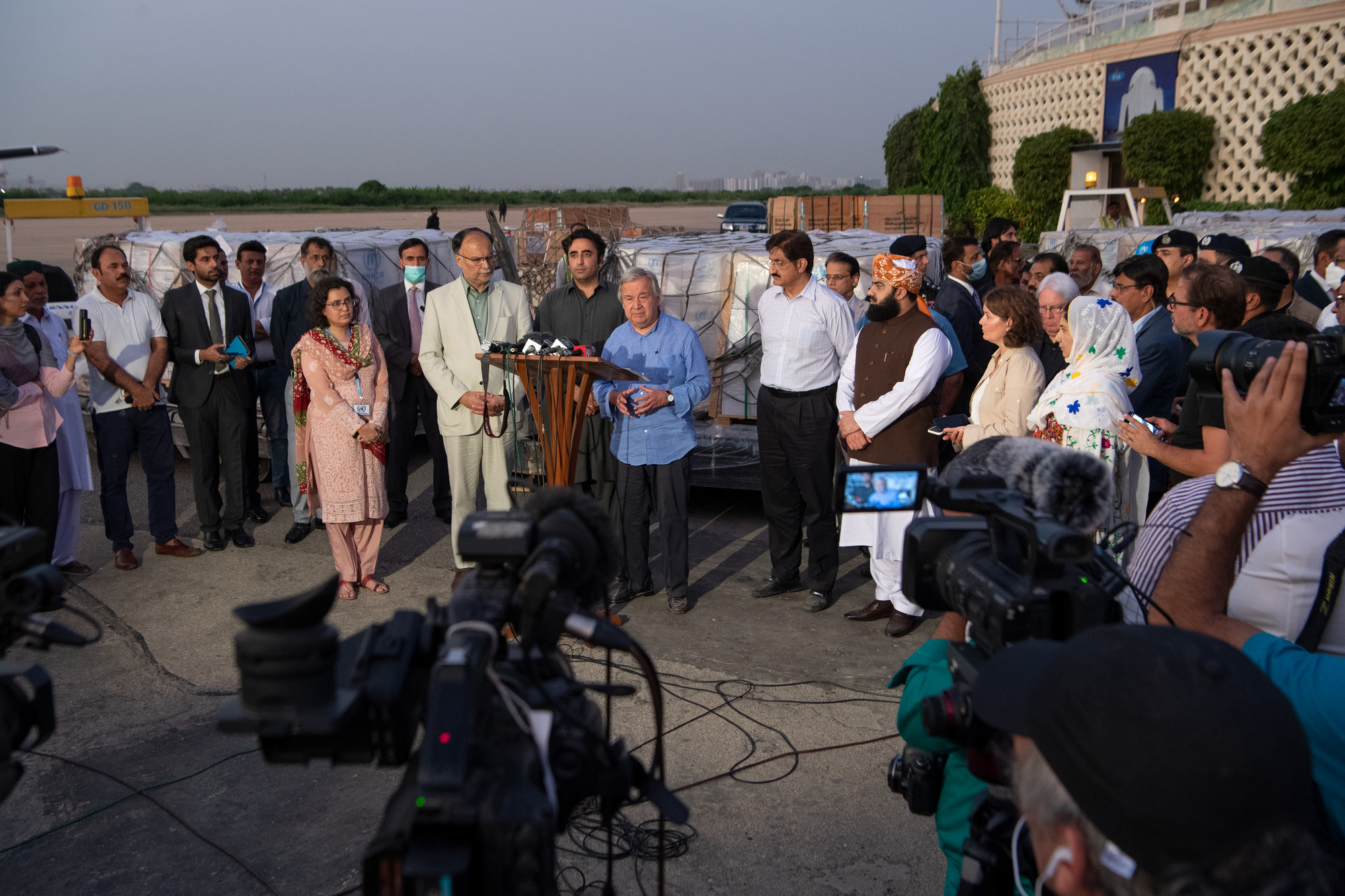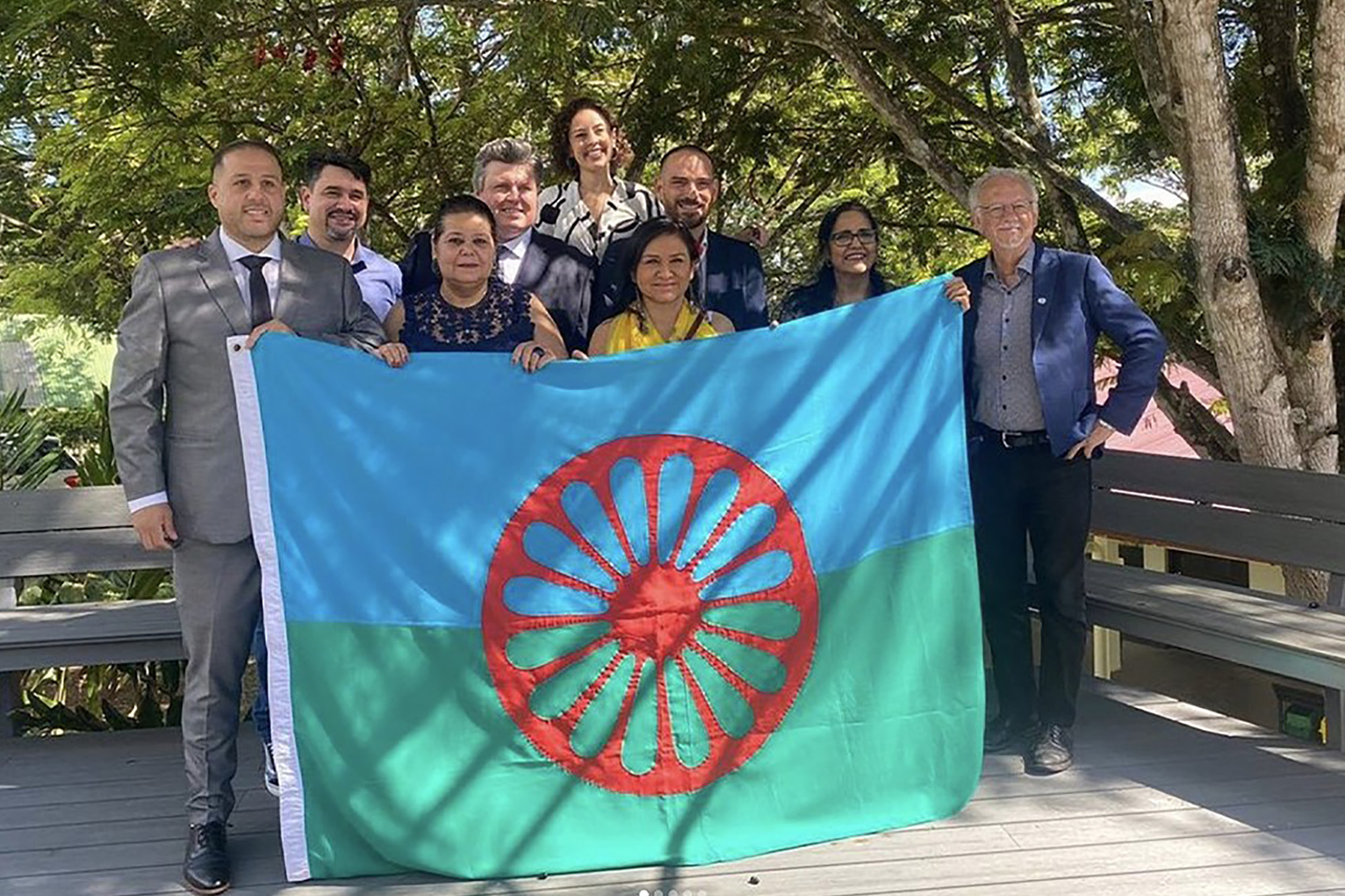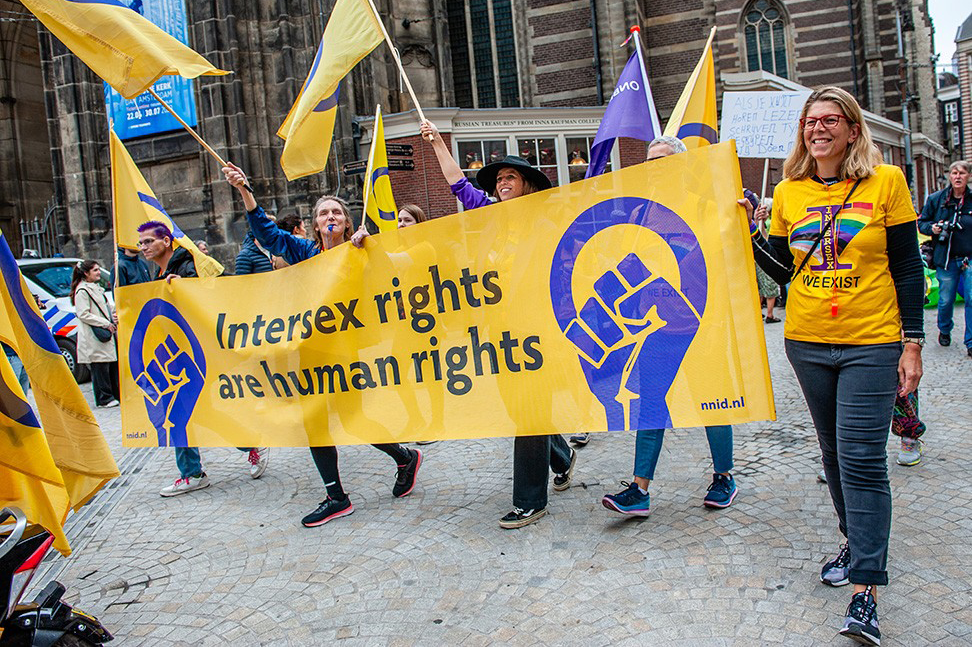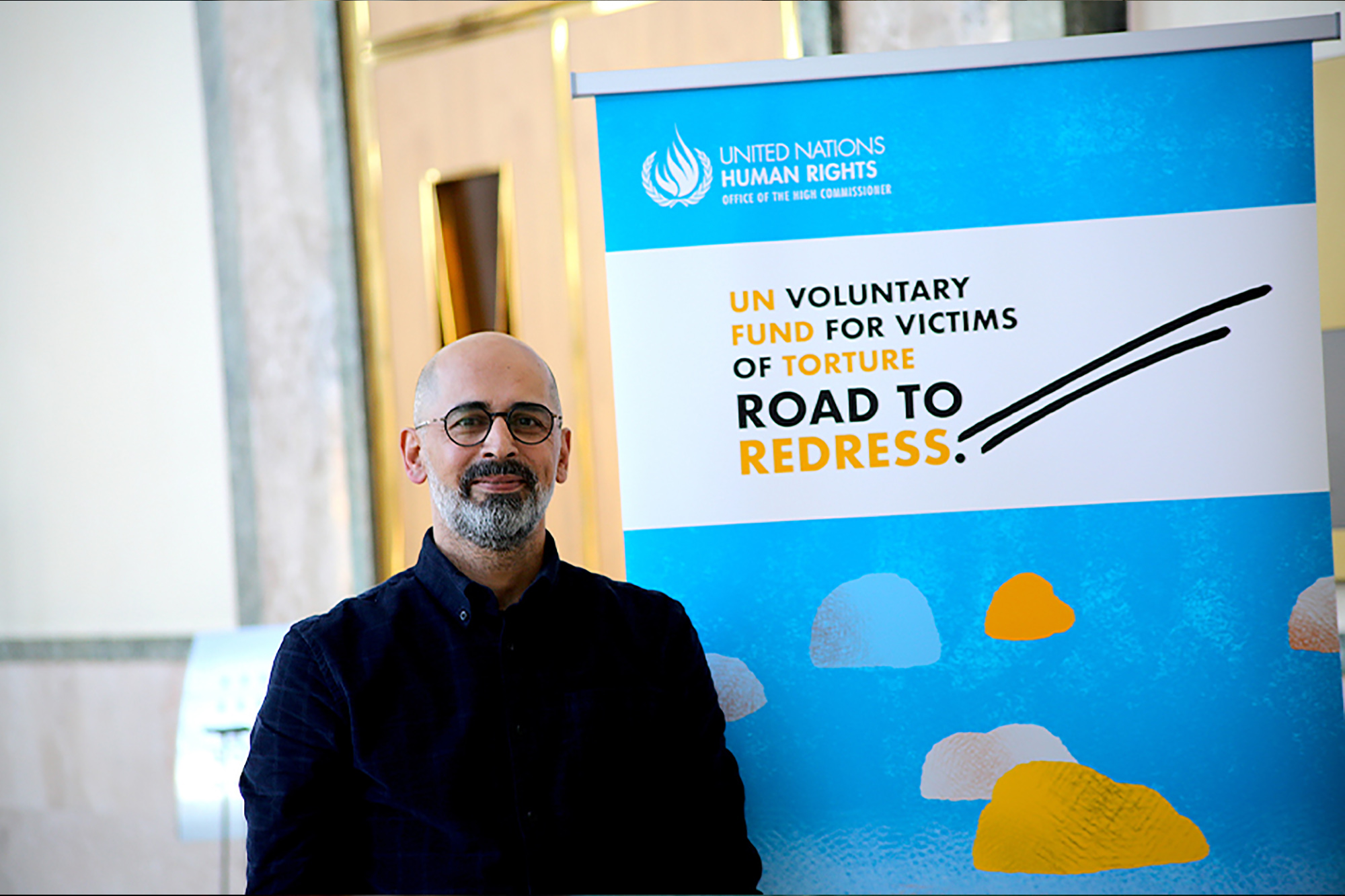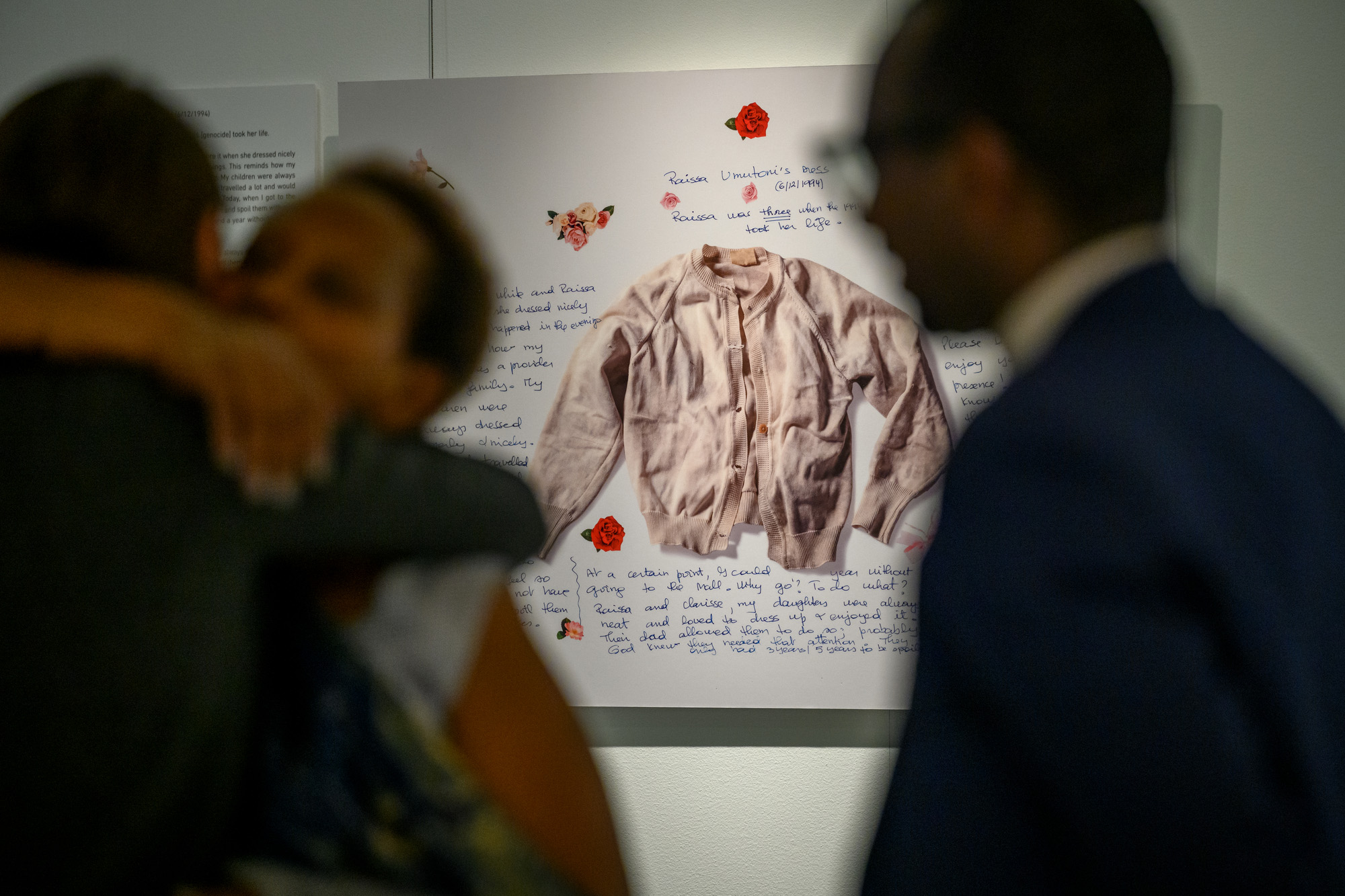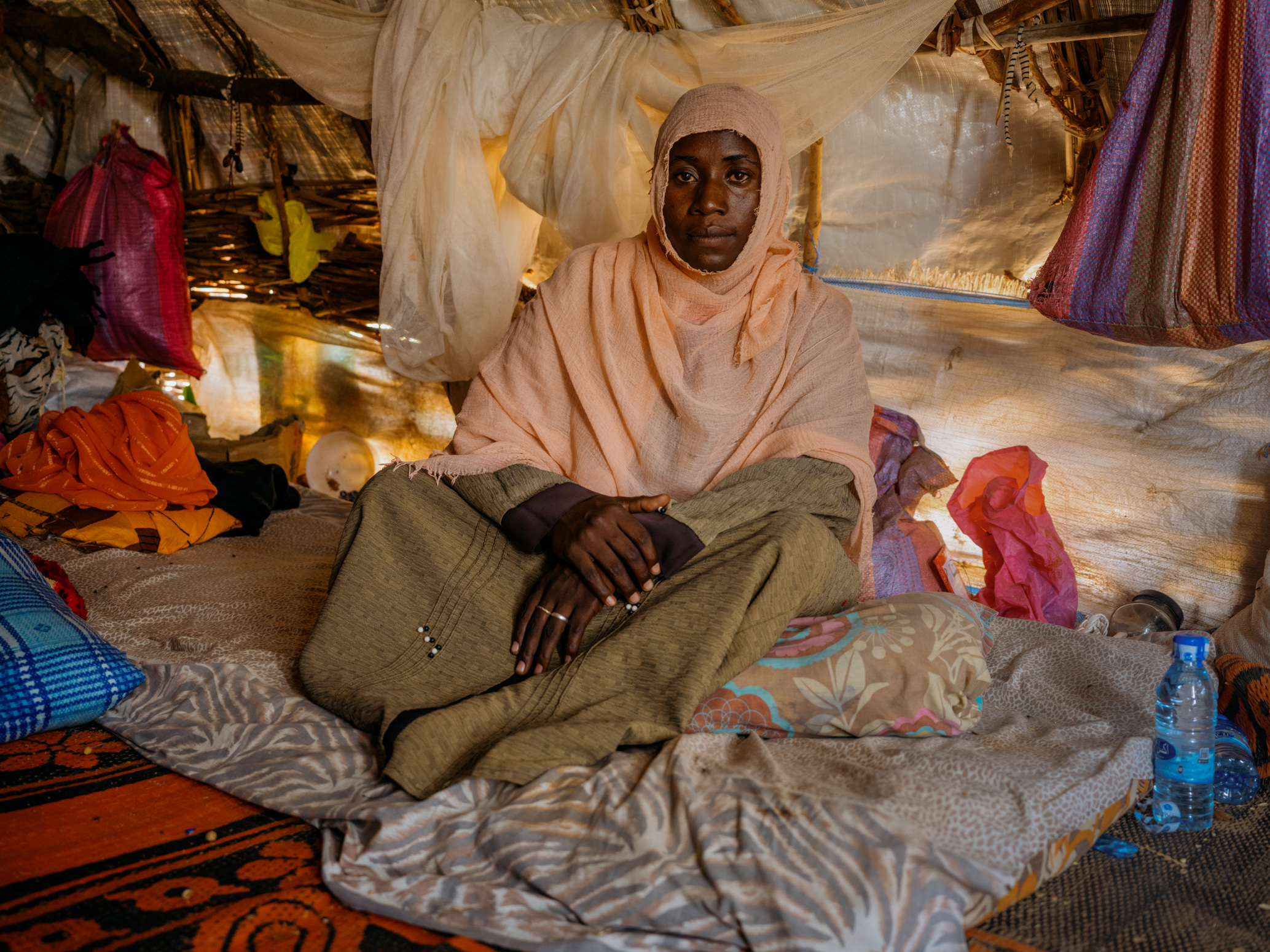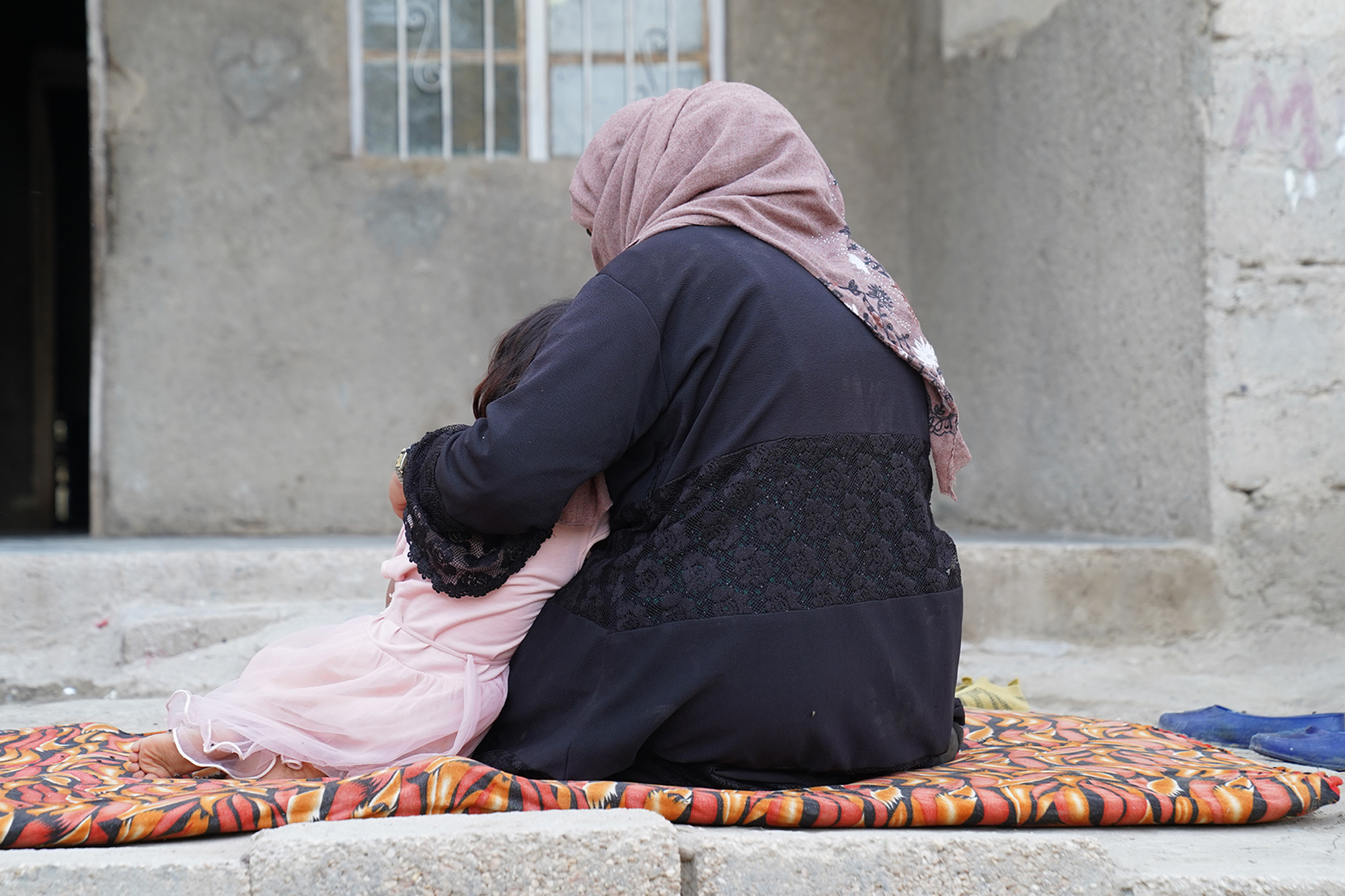Find out more in
Human Rights
All persons have an equal right to live free from violence, persecution, discrimination, harassment and stigma, including lesbian, gay, bisexual, transgender, intersex and queer (LGBTIQ+) persons. Ensuring the full spectrum of human rights and freedoms for all individuals lies at the core of the United Nations mission. It's crucial for progress in development, peace, security, and humanitarian efforts, aligning with the Universal Declaration of Human Rights and international agreements. For this reason, the UN System has launched a new website highlighting the organization's work on behalf of LGBTIQ+ people.
“[...] yet we are here seeing unfolding under our watch, our eyes, one of the fastest evolving looming famines, which has been completely fabricated. It's man-made. And which can easily be reversed through political will and political decision. It is deeply frustrating, but it's outrageous and makes me very angry [...] ”
Philippe Lazzarini holds one of the most challenging positions in the whole of the United Nations. As head of UNRWA, he is leading the backbone of the humanitarian operation in Gaza. Following the devastating terror attacks by Hamas and others on 7 October, Israel’s military operations in Gaza have brought unspeakable death and destruction. 2.2 million Palestinians are in the midst of an epic humanitarian catastrophe. In this episode, Philippe Lazzarini reflects on the trauma of the past months and the human cost of war.
“Ceasefire, ceasefire, ceasefire. If we have a ceasefire and the opening of the crossing, and we can flood assistance to the Gaza Strip, we would be able to prevent this catastrophe.”
Photo credit: ©UNRWA/Hussein Owda
As of 20 April 2024, the International Organization for Migration (IOM) and the UN Refugee Agency (UNHCR) in Pakistan estimate that over 550,000 Afghans returned to Afghanistan under coercive conditions since last September. Over 31,000 Afghans were detained in Pakistan during the same period. Afghanistan will struggle to absorb the high number of returnees. IOM provides legal aid to displaced Afghans while leading a border consortium of humanitarian partners. The Organization calls for countries to halt forced returns until safe, dignified, and voluntary returns are ensured.
Diego Luna, the Mexican actor, producer, and advocate for freedom of expression, believes that independent journalism is essential, especially in countries like Mexico with a high level of impunity. The documentary film "State of Silence," produced by Luna and directed by Santiago Maza, portrays the risky reality that many Mexican journalists live in. For Luna and Maza, documentary films are a powerful tool to defend media freedom and spark change.
Representation is crucial for people of African descent as it shapes racial perceptions and can promote inclusion. In the UN Human Rights Podcast, the Office of the United Nations High Commissioner for Human Rights (OHCHR) explores how popular culture and arts can challenge perceptions and reframe narratives about race, history, and identity. Colombian journalist Edna Liliana Valencia worked as a consultant for Disney's Encanto, helping to portray Colombia's beauty and diversity accurately. Artist Anisha Thai expresses the beauty of diversity through dance and choreography, defying myths about being African and Asian. Human rights lawyer Dominique Day reflects on the first Decade for People of African Descent as an opportunity to focus on racial justice and non-discrimination.
Photo: OHCHR
Wendy Flores, a human rights defender from Nicaragua, had to leave her country after defending other victims and supporting their rights. She studied law and later joined the Nicaraguan Centre for Human Rights. The protests of April 2018 led by environmental groups, the rural peasant population and students against the government's slow and insufficient response to forest fires in the Indio Maíz Biological Reserve, resulted in the repression of the protesters, the criminalization of demonstrators and their arrests. More than 3,600 civil society organizations have been canceled in Nicaragua during the last five years. Flores fled Nicaragua due to the risk of being criminalized for defending human rights and putting her family in danger.
This year’s World Press Freedom Day (3 May) focuses on the importance of journalism and freedom of expression in the context of the global environmental crisis. Journalists face significant challenges in gathering and disseminating information on issues such as climate change, illegal mining, and deforestation. Misinformation campaigns pose a threat to informed public debate and can undermine international efforts to tackle environmental issues. Accurate, timely and comprehensive reporting on environmental issues is critical to achieving sustainable development.
The Romani Memory Map for the Americas is a crowd-sourced initiative to recognize and honour sites of memory of the Romani community, from the United States to Argentina. Coordinated by UN Human Rights (OHCHR), it aims to strengthen Roma rights and inclusion, advance public memory of Roma people and history, and combat anti-gypsyism. The project was launched on International Roma Day and aims to advance recognition of past violations of the human rights of Roma and their impact on the present in the Americas. Miklos, a Romani from Brazil, said memorialization is key to combat anti-gypsyism.
The UN Human Rights Council's historic resolution marks a pivotal step towards protecting the rights and dignity of intersex individuals worldwide, addressing discrimination, violence, and harmful practices.
Riyad Avlar, a survivor of torture and sexual violence in Syrian detention centers, found healing through theater after his release. “I never imagined that one day I would get on a stage, but when I did I felt for the first time a big healing,” said Avlar, who heads a survivor-led organization in Türkiye for former detainees. He shared his experience at a workshop organized by the UN Voluntary Fund for Victims of Torture, which supports over 50,000 survivors annually. However, due to a funding gap, the Fund was unable to help 12,000 torture survivors last year. The Fund provides psychological, medical, social, legal, and humanitarian aid to survivors and their families.
2024 marks the 30th anniversary of the genocide in Rwanda, one of the darkest chapters in human history. In less than three months, one million Tutsi children, women and men were killed by their fellow Rwandans. On this day, we honour those who were murdered and reflect on the suffering of those who survived. “Let’s ensure that the acts that began on April 7, 1994, are never forgotten – and never repeated”, says the UN Secretary-General in his message for the observance. The UN will commemorate the anniversary with events in Geneva, Paris and New York.
Mines, explosive remnants of war, and improvised explosive devices continue to cause death and injury. On average, one person is killed or injured every hour. Many of the victims are children. Survivors of explosive hazards with disabilities, and all people with disabilities living through conflicts, are the focus of the 2024 commemoration of the International Day for Mine Awareness and Assistance in Mine Action (4 April). Join the global effort to raise awareness and advocate for the needs and rights of all people with disabilities in conflict and peacebuilding settings.
The Universal Declaration of Human Rights highlights the significance of upholding human rights, freedom, equality, and dignity for all individuals, acknowledging past atrocities due to their neglect. The UN stresses the importance of fostering a culture of peace, based on values such as freedom and justice, to prevent conflicts and ensure the full exercise of rights. To align with this goal, the General Assembly designated April 5 as the International Day of Conscience, urging all stakeholders to actively contribute to promoting peace through education, awareness-raising campaigns, and sustainable development initiatives.
The horrific atrocities committed by the Islamic State of Iraq and the Levant (ISIL) when it invaded Syria and Iraq in 2014 shocked the world. Thousands of Iraqi women were left to bring up children alone, separated from families, and living in poverty in displacement or refugee sites. By working closely with the government, the United Nations Development Programme (UNDP) has prepared communities in Anbar, Ninewa, Salah al-Din, and Kirkuk to accept 9,000 ISIL-affiliated families back into their societies.

